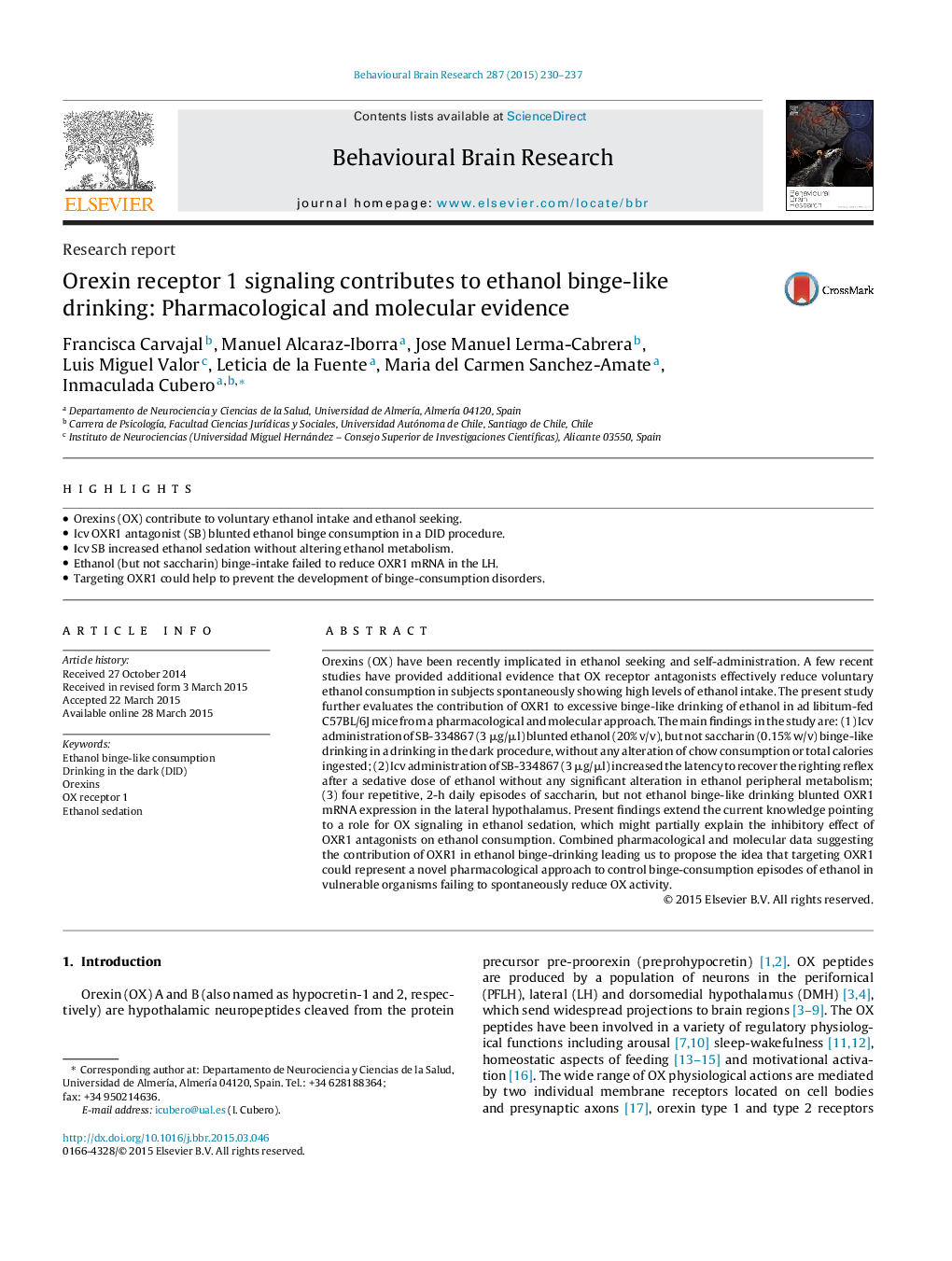| کد مقاله | کد نشریه | سال انتشار | مقاله انگلیسی | نسخه تمام متن |
|---|---|---|---|---|
| 6256915 | 1612945 | 2015 | 8 صفحه PDF | دانلود رایگان |

- Orexins (OX) contribute to voluntary ethanol intake and ethanol seeking.
- Icv OXR1 antagonist (SB) blunted ethanol binge consumption in a DID procedure.
- Icv SB increased ethanol sedation without altering ethanol metabolism.
- Ethanol (but not saccharin) binge-intake failed to reduce OXR1 mRNA in the LH.
- Targeting OXR1 could help to prevent the development of binge-consumption disorders.
Orexins (OX) have been recently implicated in ethanol seeking and self-administration. A few recent studies have provided additional evidence that OX receptor antagonists effectively reduce voluntary ethanol consumption in subjects spontaneously showing high levels of ethanol intake. The present study further evaluates the contribution of OXR1 to excessive binge-like drinking of ethanol in ad libitum-fed C57BL/6J mice from a pharmacological and molecular approach. The main findings in the study are: (1) Icv administration of SB-334867 (3 μg/μl) blunted ethanol (20% v/v), but not saccharin (0.15% w/v) binge-like drinking in a drinking in the dark procedure, without any alteration of chow consumption or total calories ingested; (2) Icv administration of SB-334867 (3 μg/μl) increased the latency to recover the righting reflex after a sedative dose of ethanol without any significant alteration in ethanol peripheral metabolism; (3) four repetitive, 2-h daily episodes of saccharin, but not ethanol binge-like drinking blunted OXR1 mRNA expression in the lateral hypothalamus. Present findings extend the current knowledge pointing to a role for OX signaling in ethanol sedation, which might partially explain the inhibitory effect of OXR1 antagonists on ethanol consumption. Combined pharmacological and molecular data suggesting the contribution of OXR1 in ethanol binge-drinking leading us to propose the idea that targeting OXR1 could represent a novel pharmacological approach to control binge-consumption episodes of ethanol in vulnerable organisms failing to spontaneously reduce OX activity.
Journal: Behavioural Brain Research - Volume 287, 1 July 2015, Pages 230-237